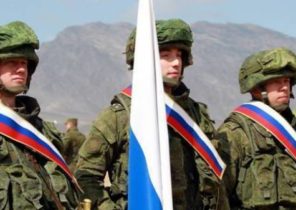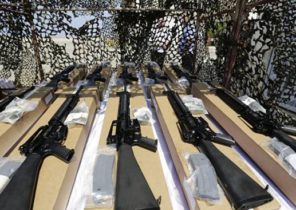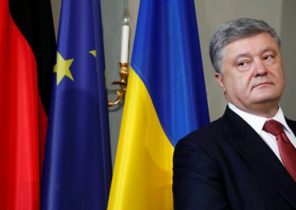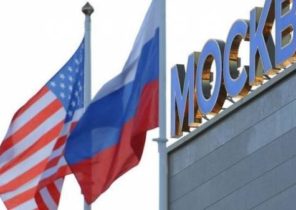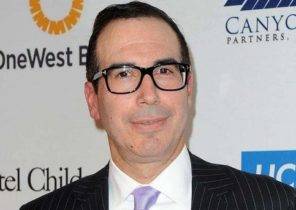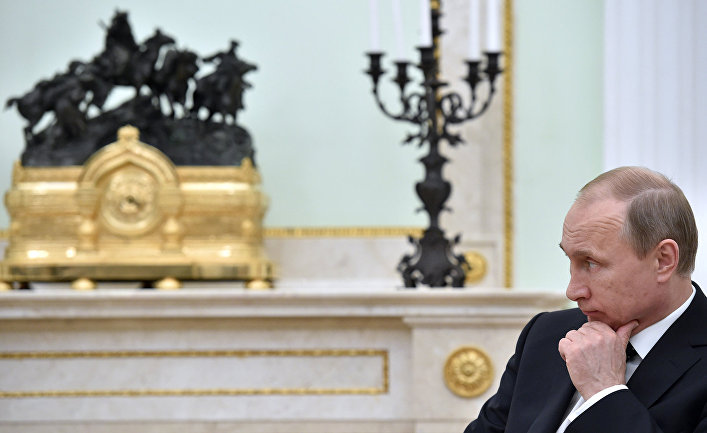
A former KGB officer that the hottest years of the cold war, held in East Germany and has experienced the fall of the Berlin wall, and now the President of Russia Vladimir Putin together with the new ruling entourage from St. Petersburg led Moscow in the twenty-first century.
In the analysis of the Russian history you can see that it is often charismatic and authoritarian leaders, under whose leadership in the steppes of Eurasia is the birth of Russia as a major power. One of those leaders that emerged in post-Soviet Russia, the political culture which was, to the extent possible dependent on the past, managed to raise the Russian state on its feet. This is a former KGB officer, President Vladimir Vladimirovich Putin, who since the beginning of 2000 sets the course in Russian politics. Putin, who was born in the city, representing the Western face of Russia, called at that time Leningrad, nowadays Saint-Petersburg, at the faculty of law in this city, in 1975 he joined the ranks of residronate where he really wanted to make a career, and continued to work there for 16 years.
After the collapse of the Soviet Union Putin was Deputy mayor of St. Petersburg, and then was appointed to a senior position of the apparatus of the Kremlin. Sensitive against Putin, bribery and corruption over the years in the Kremlin, has earned the endorsement of former Russian President Boris Yeltsin, and Putin, who had extensive experience in the KGB, was appointed Director of the Federal security service (FSB) of Russia. The FSB Putin worked for about a year, and in August 1999 on the appointment of Yeltsin replaced Sergei Stepashin as Prime Minister. In December of the same year, after Yeltsin resigned on their own due to health problems and introduced Putin as his successor, Putin became the President of the Russian Federation (RF). Putin won a victory in the last four months of the presidential election as the Chairman of the party “United Russia”, together with his close colleague, Dmitry Medvedev created a successful ruling Duo, and the country was restored a strong Central government.
The end of the domination of the oligarchs
The arrival of Putin to power came in a period of transition in post-Soviet Russia, which with the collapse of the Soviet Empire, not saved by the initiatives of “glasnost” and “perestroika”, and then the liberal reforms of shock therapy in the 1990-ies in economic terms, fell on his knees before the West. This period saw the emergence of wealthy economic elites in the process, in which the Russian state tried to move from a centrally planned economy to free-market capitalism, and so-called dominance of the oligarchs in the Russian economy. These circles are used to control Yeltsin and the Kremlin entourage, believed that they will be able to take on Putin, but, underestimating the humble KGB, they eventually were forced to bow to the power of the Kremlin headed by Putin.
Russia under Putin has achieved considerable economic growth; while maintaining control over the shadow economy has increased tax revenues, and the ratio of debt to the budget began to decrease gradually. In the Putin era, the Russian economy, which exports fossil fuels, oil and natural gas, came back to life, increased almost ten times, and in parallel with this, the increased purchasing power of the Russian population and income per capita.
The transition to a constitutional autocracy in Putin’s Russia
When Vladimir Putin was sworn in as Russian President on 7 may 2000, no one expected to reign in Russian politics it will be for many years. Although initially the arrival of Putin in the Kremlin was perceived as a project of special services of the Russian state in the country, Putin is the passage of time appears as a leader who wins the location of the Russian people and is gradually gaining strength. So has paved the way for reforms of centralisation in the country and the presidential term, which under the Constitution could not be more than two four-year terms, was changed to two terms of six years. The Constitution of the Russian Federation in 1993 was revised in 2008, Putin handed the presidency to Medvedev, and then again in 2012 he was elected and had the opportunity to take the presidency for two terms.
Moreover, the reorganization of the State Duma and limiting some of its powers in favor of the President as a result of number of changes and once the governors were directly appointed by the Kremlin, Russia’s political system, the Constitution called semi-presidential, in practice, was completely subordinated to the President. With the great support of the Russian people, Putin and the Russian leadership did not refrain from in order to use this power primarily to subordination and, if necessary, suppression of the opposition and the media in the country.
With the election of President Putin was the invention of a new tradition in Russia, and both the state and societal level, instead of communism was declared nationalism. In this direction Putin rehabilitated the Russian Orthodox Church, which was neglected in Soviet times, has been entrusted the important mission of reviving spiritual values of the Russian people and the elimination of the divide between state and society.
Putin has often stressed that the main problems of modern Russia — the demographic decline, the weakening of the family institution and detachment of young people from spirituality. From this point of view is extremely important for Putin is Russian reconciliation with the past, a return to traditional codes of Orthodoxy and of the Slavs. And all this implies a new Russian identity, which, in fact, and wishes to build Putin and the dream of great Russia, of which this identity will lead.
Putin-Eurasian: return to Empire
One area in which Putin is the most successful, is the production of foreign policy and, in particular, the recovery forces of Russia in the post-Soviet space in the framework of the concept of Eurasianism. As soon as Putin came to power, he immediately began to translate into practice the doctrine of the near abroad, declared in 1993. Moscow, developing close relations with the capitals of the former Soviet republics, again regained the role of the vanguard force in the region due to such created over the last 25 years of political, economic, military and cultural formations as the Commonwealth of independent States, Organization of collective security Treaty, Shanghai cooperation organization, the Eurasian economic Union.
The Russian leader, having learned the lessons of the catastrophe of the submarine “Kursk” that took place in 2000, when he came to power, started the modernization of the army, and, with the understanding that the armed forces is an indispensable priority for a strong Russia, improved military technology and raised the fighting capacity of the army. Putin, who came into geopolitical competition with the West in Eastern Europe and the Caucasus to prevent the expansion of the NATO Alliance in the post-Soviet space and increased Russian military presence in these regions. Following the military operation in Georgia in August 2008 and overthrow the Pro-Russian government in Ukraine, the geopolitical competition resulted in the annexation of Crimea to Russia and its intervention in Ukraine in favor of Russian separatists in the East of the country.
In two of these military interventions, the Putin administration has suppressed the Pro-Western color revolutions that occurred in the region since the beginning of 2000, and gave the Western countries a signal that Russia in the name of protecting their interests will abstain from the necessity of the use of military alternatives. These moves, which resulted in the support of the Putin administration in the country has exceeded 80%, outside of Russia was met with obvious discontent and persuaded Western countries to impose a number of sanctions against Russia in financial, energy, security. Although these sanctions have aggravated the economic situation in Russia, Putin’s leadership has never retreated from geopolitical and geoeconomic interests of Russia.
While relations with the West evolved in the Putin era with difficulty, Russia at that time under the influence of the Eurasian orientation to the extent possible, improved its relations with such regional powers as China, Turkey, Iran. Moscow, to build favorable economic and trade partnerships with these countries, expanded its policy in the middle of the neighborhood to the South and East, and in the past competition, political tensions with these States has given way to cooperation.
Putin and Russia: from 2016 to 2017
As a result of the collapse in oil prices 2016 to become for Russia the year when its economy deteriorated and with the extension of Western sanctions, the crisis has further deepened. Putin, speaking at the traditional meeting at the end of the year, said that the budget was calculated last year, based on the forecast — $ 60 per barrel have been adjusted for 2017 was laid the price of oil — $ 40 per barrel, and more on this account will not be delusions.
On the other hand, in 2016 the most actual for Russia and the world political subject, no doubt, was Syria. Moscow, which from the beginning has provided political support to the Damascus regime since the end of last year has translated this support into a military plane and made a decision about intervention in Syria from the air. This Moscow’s initiative breathed life into almost fagged out mode, and by the end of last year, Assad’s forces took the opposition city of Aleppo, once the second largest city in the country.
The fact that in as an alternative to negotiations in Geneva Russia, Turkey and Iran postponed peace talks on Syria to the capital of Kazakhstan, Astana, and to these negotiations, Moscow and Ankara have agreed on a truce in Syria and made its guarantors, has raised the hope that in 2017, the humanitarian drama and the civil war raging for more than five years, you may be able to stop. However, if this problem is resolved, also a high likelihood that Russia’s relations with Turkey will deteriorate again, and as in Russia and in the international public opinion of Russia’s role in Syria may be even more challenged; and this situation can complicate the position of the Putin administration. At the same time constructive statements against Russia did trump during his election campaign and that the new American President endorsed this decision of Putin in Twitter, encouraging developments from the point of view of these two countries.
In General we can say that in 2017, Putin and Russia is waiting for a more predictable year than the one left behind. The constructive role Russia will play in regional issues, will further strengthen Putin’s position inside the country and abroad. If we consider that the European countries will focus primarily on the process of Britain’s withdrawal from the EU, the elections in France and Germany, as well as refugees, migration, xenophobia and economic and financial crises, then 2017 could be the year when Russia will be more free to act in the political, economic and military relations.

